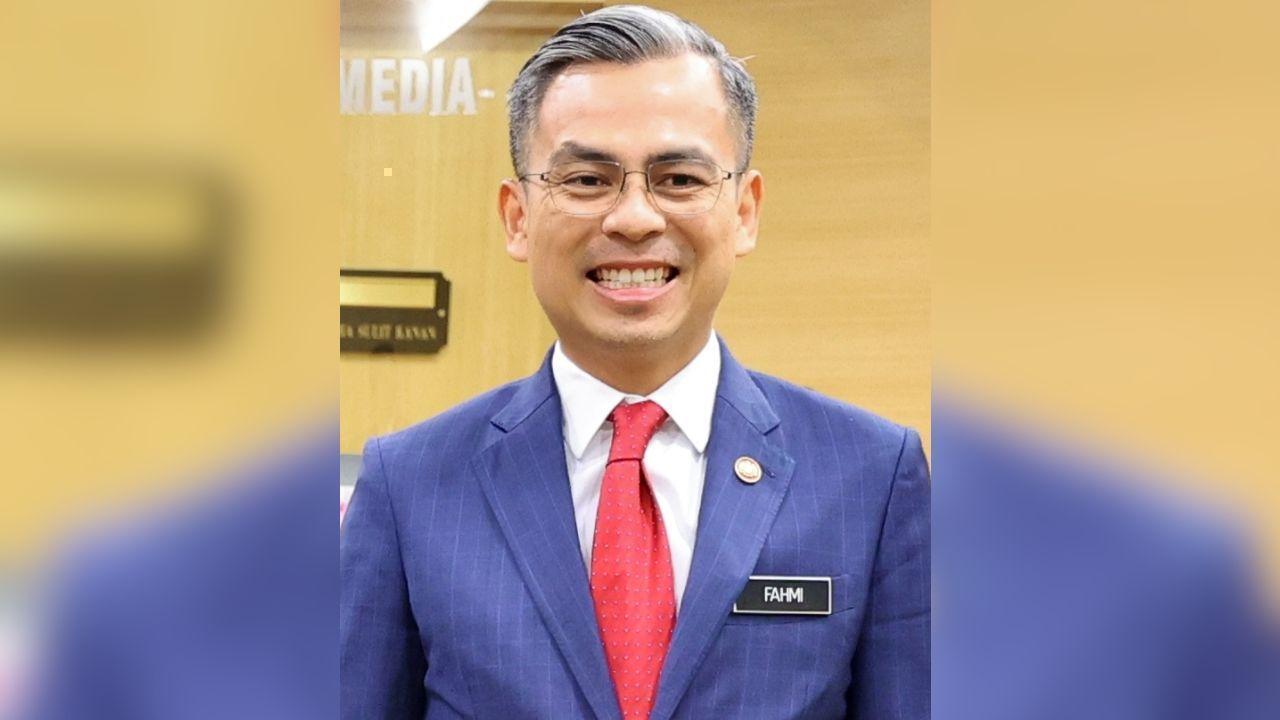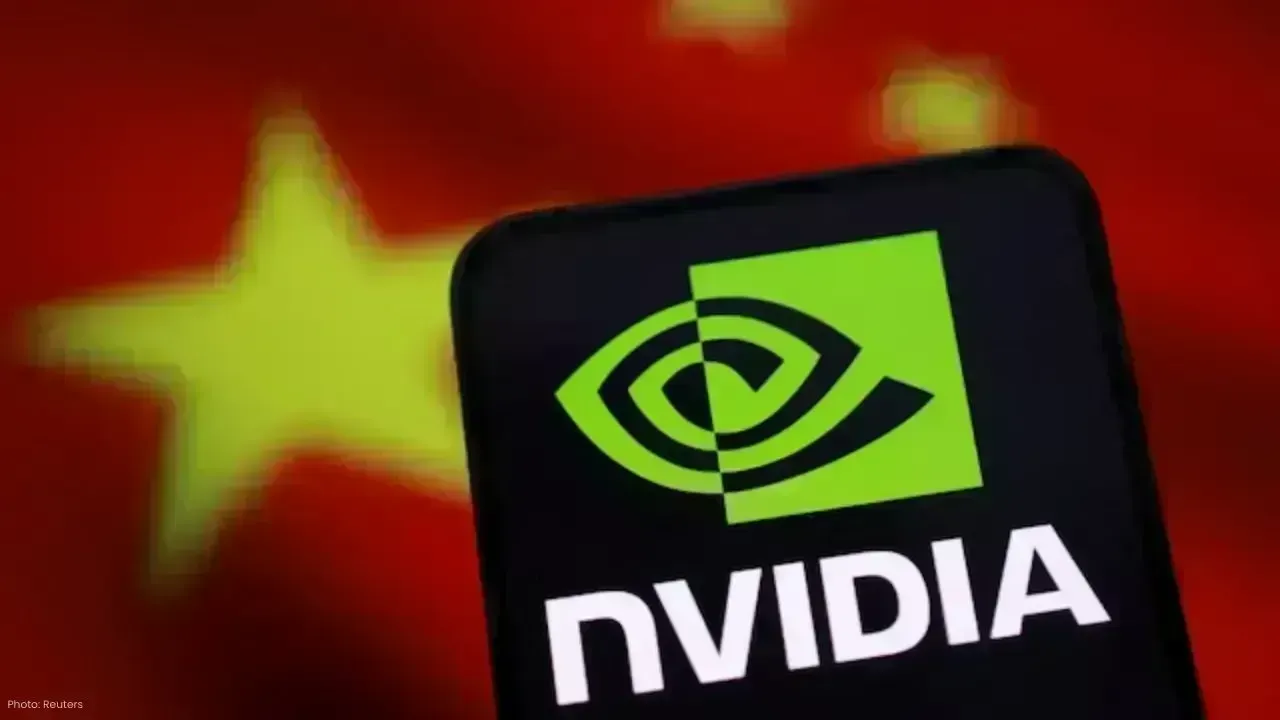You have not yet added any article to your bookmarks!

Join 10k+ people to get notified about new posts, news and tips.
Do not worry we don't spam!

Post by : Meena Ariff
Photo: Wikipedia
Malaysia’s Communications Minister, Fahmi Fadzil, has once again spoken in support of the government’s mobile phone data collection programme. On Wednesday, while speaking at a major event, he dismissed the rising concerns about privacy. He said that the programme, called the Mobile Population Data (MPD) system, is not meant to harm people or spy on them. Instead, he explained that the programme is a part of Malaysia’s sovereign responsibility — meaning it's something a country has the full right to do for its benefit.
His remarks came during the International Connectivity Conference and Expo, where he responded to ongoing public criticism about the MPD programme. Fahmi said some people were making a “big deal” out of something they might not fully understand. He explained that this programme does not collect personal details and is only used for useful statistics to help the government make better decisions.
It’s About Public Good, Not Spying
Fahmi told the audience that being in control of the country’s data and digital systems is part of being a strong and independent nation. He explained that the government is not collecting names, phone numbers, or anything personal. Instead, the system looks at general patterns and trends from mobile networks. This helps the government understand how people are using mobile internet, how many people are travelling between states, and what areas need better services.
The minister referred to this as a “sovereign act”, meaning it is the right and responsibility of a government to collect such data, as long as it is done responsibly and does not harm people’s rights.
Pointing Fingers at Big Tech Companies
To support his view, Fahmi mentioned a recent example involving Google, one of the biggest technology companies in the world. He pointed out that Google was fined USD 314 million in California because it was accused of collecting data from 14 million users without their permission.
He argued that people often criticize their governments harshly but remain silent when big international companies take data without consent. Fahmi said, “We give away our data every day — to social media, to apps, to websites — without even realizing it.” He questioned why people complain so much about a government programme designed to improve services but say little about corporate data misuse.
Parliament Statement: The Programme Will Continue
Earlier the same day, Fahmi also made a clear statement in the Dewan Rakyat (Malaysia’s Parliament). He said the Mobile Population Data (MPD) programme would not be stopped, even though there have been increasing calls for it to end. His reason? No privacy rules have been broken.
Even though critics say the system might be dangerous to personal privacy, the government maintains that the data collected is completely anonymous. It doesn’t include names, phone numbers, addresses, or any information that could identify a person.
Why People Are Worried
Since news about the MPD programme first became public, both the government and the Malaysian Communications and Multimedia Commission (MCMC) have faced strong criticism. Many people are concerned that their mobile phone data could be misused or might fall into the wrong hands.
Opposition leaders, privacy rights groups, and even everyday citizens have questioned whether this kind of programme should exist in a free and democratic country. They have asked whether the public was given enough information before the programme was introduced, and whether people were given a choice to opt out.
What is MPD Really For?
The MCMC has explained in detail what the MPD system does. They say the programme collects data from Mobile Network Operators (MNOs) — the companies that run mobile phone services in the country. But this data is not personal. It is general information, used only to understand national trends.
The data is used mainly for two important areas:
This information helps make sure that all areas — even rural ones — can get proper internet services.
The Tourism Sector
The goal here is to support local businesses, plan better tourism policies, and understand visitor trends.
No Personal Information is Collected
The MCMC has clearly stated that no Personally Identifiable Information (PII) is collected, accessed, or shared. This means:
All the data is collected in large groups, like how many people are using mobile broadband in a city, not who they are.
Minister’s Final Word: “Let’s Be Honest About Data Use”
Fahmi ended his talk by reminding people that everyone uses digital services every day — and in doing so, we often share data freely. From search engines to social media, people give away personal details without thinking twice.
He said it was unfair to judge the government’s efforts so harshly while ignoring what private companies are doing. “We make noise about our programmes,” he said, “but remain silent about the data we give away to others.”
A Divided Opinion
Despite the minister’s strong defense, not everyone agrees. Many people remain skeptical. Some say the programme could be misused in the future, even if it is safe now. Others argue that the government should have explained the MPD system better before launching it.
However, there are also voices of support. Some experts say that data-driven decision-making is necessary in today’s digital world — especially when used for planning internet access or improving tourism.
They argue that if the data is truly anonymous and secure, then such programmes can help governments provide better services, especially in areas that need them most.
Trust, Transparency, and Technology
As Malaysia moves further into the digital age, the challenge lies in balancing privacy and progress. The Mobile Population Data (MPD) programme is designed to help the country plan better, serve people more efficiently, and support both technology and tourism.
But for it to work, people need to feel safe. That means the government must continue to clearly explain the purpose of such programmes, protect data from any misuse, and listen to public concerns.
The debate around MPD is not just about mobile phones — it’s about trust. In a world where data is the new oil, people want to know who holds the pipeline and what’s flowing through it.










Delhi Pollution Behind Antonsen’s India Open Withdrawal Again
World No. 3 Anders Antonsen pulled out of the India Open citing severe air pollution in Delhi and wa

Antoine Semenyo Scores Twice, Shines Bright in Manchester City Debut
Antoine Semenyo scores in his first two matches for Manchester City, boosting confidence and helping

IOC & BPCL Discover New Oil Reserves in Abu Dhabi, Boost India’s Energy Security
IOC and BPCL’s joint venture UBPL made fresh oil discoveries in Abu Dhabi’s Onshore Block 1, marking

Singapore’s Opposition Leader Faces Removal Over False Testimony
Singapore’s Parliament will debate removing Opposition Leader Pritam Singh after his conviction for

China Halts Nvidia H200 AI Chip Imports, Tightens Tech Purchase Rules
China bars Nvidia's H200 AI chips, restricting purchases to R&D only amid rising US-China tech tensi

Kim Yo Jong Rejects South Korea’s Peace Hopes, Demands Apology Now
Kim Yo Jong says South Korea’s hopes for better ties are impossible and demands apology over drone i